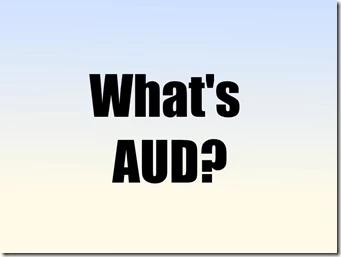Changes Disorder Terminology
DSM-IV described two distinct disorders, alcohol abuse and alcohol dependence, with specific criteria for each.
DSM-5 integrates the two DSM-IV disorders, alcohol abuse and alcohol dependence, into a single disorder called alcohol use disorder (AUD) with mild, moderate, and severe sub-classifications.
Changes Diagnostic Thresholds
Under DSM-IV, the diagnostic criteria for abuse and dependence were distinct: anyone meeting one or more of the "abuse" criteria...would receive the "abuse" diagnosis. Anyone with three or more of the "dependence" criteria during the same 12-month period would receive a "dependence" diagnosis.
Under DSM-5, anyone meeting any two of the 11 criteria during the same 12-month period would receive a diagnosis of AUD. The severity of an AUD-mild, moderate, or severe-is based on the number of criteria met.
Scoring for symptoms 1 through 11. The presence of at least 2 of these symptoms indicates an Alcohol Use Disorder (AUD).
The severity of the AUD is defined as: Mild: The presence of 2 to 3 symptoms; Moderate: The presence of 4 to 5 symptoms; Severe: The presence of 6 or more symptoms
In the past year, have you:
1 Had times when you ended up drinking more, or longer, than you intended?
2 More than once wanted to cut down or stop drinking, or tried to, but couldn't?
3 A great deal of time is spent in activities necessary to obtain alcohol, use alcohol, or recover from its effects.
4 Spent a lot of time drinking? Or being sick or getting over other aftereffects? (**This is new to DSM-5**)
5 Found that drinking-or being sick from drinking-often interfered with taking care of your home or family? Or caused job troubles? Or school problems?
6 Continued to drink even though it was causing trouble with your family or friends?
7 Given up or cut back on activities that were important or interesting to you, or gave you pleasure, in order to drink?
8 More than once gotten into situations while or after drinking that increased your chances of getting hurt (such as driving, swimming, using machinery, walking in a dangerous area, or having unsafe sex)?
9 Continued to drink even though it was making you feel depressed or anxious or adding to another health problem? Or after having had a memory blackout?
10 Had to drink much more than you once did to get the effect you want? Or found that your usual number of drinks had much less effect than before?
11 Found that when the effects of alcohol were wearing off, you had withdrawal symptoms, such as trouble sleeping, shakiness, restlessness, nausea, sweating, a racing heart, or a seizure? Or sensed things that were not there?
And there are the basics. If an exam answer specifies "alcohol dependence" or "alcohol abuse," be wary. With DSM-5, it's alcohol use disorder.

 Continuing our series of quick posts highlighting big diagnostic changes that appear in DSM-5. Up next: Alcohol Use Disorder (AUD). Again, let's let the net do what it does and answer the question. What is AUD? How is it different from what appeared in DSM-IV-TR?
Continuing our series of quick posts highlighting big diagnostic changes that appear in DSM-5. Up next: Alcohol Use Disorder (AUD). Again, let's let the net do what it does and answer the question. What is AUD? How is it different from what appeared in DSM-IV-TR?